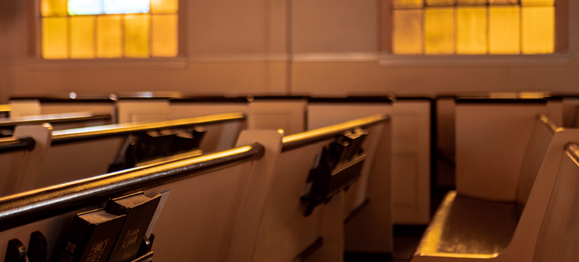
In recent days, we have been wisely encouraged by medical professionals to practice social distancing to help avoid the spread of the novel coronavirus COVID-19.
Social distancing, according to the Centers for Disease Control and Prevention (CDC) involves “remaining out of congregate settings, avoiding mass gatherings, and maintaining distance.” The idea is to exercise caution and “put distance between yourself and other people if COVID-19 is spreading in your community.”
This advice is challenging for any community with schools, businesses, and other gatherings. It is especially challenging to those of us who are believers, because assembling, discipling, baptizing, and even partaking in the Lord’s Table, as Christ calls us to do, cannot be done effectively when our paradigm is on social distancing.
How is the church to function during a crisis like this? How do we resolve the tension between being cautious and being faithful? Here are five ways:
1. Leaders must communicate. Let your church family know what you are doing as a church in response to a crisis, and let them know how they can help. Our church staff has been closely following the CDC recommendations as well as those of our local health department. I sent an email to our church family this week communicating these steps and asking for their help. (The letter is also posted here.)
2. Leaders must be willing to adapt the ministry schedule. We must be ready and willing to postpone or cancel special events. (For instance, our ministry made the difficult decision to cancel the Spiritual Leadership Conference Asia for this very reason. We did our best to thoroughly explain the steps that led to this decision to those involved.) Another way to adapt the ministry schedule would be to create smaller venues for worship and teaching if the need comes to your community.
3. Churches must use technology. Churches today have the ability to easily live stream their services through various venues, including Facebook Live. Live stream can help members who are home sick, avoiding spreading their symptoms to others. Be sure as a church to communicate the live stream availability, especially if you are going to have a churchwide service by way of live stream. This is also a helpful time for churches to have online giving options and to communicate those to the church family, educating members that whether we assemble in person or not, our worldwide gospel mission continues.
4. Churches must pray. During a time of crisis, prayer should always increase. I think of when Peter was in prison in Jerusalem during a wave of persecution that had just seen James beheaded. Acts 12:5 records, “Peter therefore was kept in prison: but prayer was made without ceasing of the church unto God for him.” This is a good time to organize prayer teams, perhaps through adult Bible classes or the deacon ministry.
Prayer can also bring peace to our hearts when we become fearful. Philippians 4:6–7 admonishes and promises, “Be careful for nothing; but in every thing by prayer and supplication with thanksgiving let your requests be made known unto God. And the peace of God, which passeth all understanding, shall keep your hearts and minds through Christ Jesus.”
5. Members must remain connected. During a time when people may be leary of social interaction, we can certainly contact our widows, absentees, and Sunday school classes by way of telephone or text visitation. It is imperative that a church stay in touch one with another during a time of social distancing. The local church is “one body in Christ, and every one members one of another” (Romans 12:5).
Although it is true that we, as believers, find ourselves in a challenging moment to minister in a society that is practicing social distancing, we need not be discouraged or fearful for the ability of the church to continue. For Christ promised, “…I will build my church; and the gates of hell shall not prevail against it” (Matthew 16:18).
Jesus prophesied that there would come times when “…great earthquakes shall be in divers places, and famines, and pestilences…” (Luke 21:11), so the current situation certainly does not take Him by surprise.
As Christians, rather than responding in fear or giving up on our responsibility to minister to one another and continue to proclaim the gospel, we should be wise and proactive. And we should be so committed to our mission that we can be flexible and adaptable in finding ways to carry it out.



